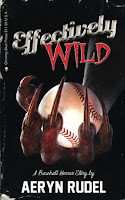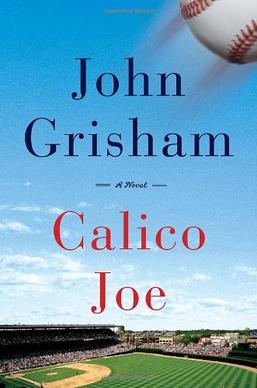 |
| Source: Cincinnati Reds |
Monday was a busy day, like any other. One might point out, as my manager did, that it was my work anniversary. I generally don't take notice. But I also always take my birthday off so they don't decorate my cube. (I hate that.) Had to help my car-impaired stepson and his wife get around while they wait for a water pump install. And my television's backend platform went down so I couldn't even watch broadcast or a DVD. I entertained my wife for two hours with my vast vocabulary of swear words and shaming Vizio on two social media platforms, both with GIFs of someone smashing a television.
Oh, and to cap it off, Pete Rose died at the age of 83.
To say my reveling in my technological misfortunes and hanging out with family ground to a screeching halt is an understatement. A big piece of my childhood just disappeared without warning. We had already lost Dame Maggie Smith and Kris Kristofferson over the weekend, along with a pair of lesser-known but well-regarded actors. But Pete Rose. Charlie Hustle.
Wow.
Pete is one of those guys who is complicated. And yet he's not. His gambling scandal in the late eighties came as a shock to those of us who grew up following the Big Red Machine. Even growing up in Cleveland's sphere of influence, we worshiped the mighty Reds. They had an all-star line-up: Rose, Johnny Bench, Tony Perez, Joe Morgan, Dave Concepcion, Ken Griffey Sr. I had Rose, Bench, and Concepcion's Topps cards from 1976. Of course, my mom threw them away before I realized how valuable they were. But when you're forced to watch a foundering Cleveland Indians, who would go on to a decade under the ownership of a dead man, you latched on to the next nearest thing. And no Clevelander in their right mind would become a Pirates fan. Oh, we had Steelers fans. There's a reason the original Steelers-Browns rivalry worked so well. But the Pirates? Ew! The Reds, however, were from Ohio. And unlike cities like New York, Chicago, or LA, with two teams in the same city or very near each other, we knew the Reds were NL to our struggling AL team.
And Pete Rose was the face of that team.
As an adolescent, I sat at the edge of my seat as Rose chased Joe DiMaggio's hitting streak record. (He came up short, alas, but boy, was that great baseball.) As a young man, I was shocked when Pete beat Ty Cobb's hit record. I still lived on the fringes of the Cleveland exurbs back then, blasting Led Zeppelin from my Camaro while the wind blew through my mullet. I thought, "Wait. He's how old? And he's still breaking records?" He would retire from playing a year later and settle in as the Reds manager. That's when it happened.
It was discovered Pete bet on baseball. Eventually, he would admit to it, and he would even admit betting on the Reds, a big no-no. I was shocked. Mind you, juice ball was not really a thing yet.
I moved to Cincy not long after, and as I spent more time here, I also ran into people who knew Pete, met Pete, even did business with Pete. And I was not surprised. Or even disappointed. Pete is a product of Cincinnati's West Side, and it doesn't get anymore Cincinnati than that. This is old neighborhood, where you're born, live, and die within the same city blocks. Gambling in bars is a part of the culture there. Skyline Chili, an institution in the rest of the city, is sacred there. You don't drink craft beer; you drink Hudey or Natural Lite or Bud Lite. (The woke thing did nothing to dent Bud Lite's sales. The trans model who triggered it was a UC athlete, so Kid Rock could go hang. He's not even real Detroit anyway, 32-mile to Eminem's Eight Mile.) Gambling is a big part of West Side culture. It's at every church festival, in every bar, at the Eagles Club. It's Fred and Barney hanging with Joe Rockhead. Blue collar culture.
And no one was more blue collar than Pete Rose.
Was what Pete did that bad?
Well, he broke the rules. In fact, it's a rule the NFL doesn't think twice about coming down on and with less fanfare. I suppose if Tom Brady had been caught gambling on football or Joe Burrow or Patrick Mahomes, it'd be career-ending. At the same time, there was a sense the lifetime ban and the exile were only the beginning, that Commissioner Bart Giamatti intended to rehabilitate this most revered baseball player. Indeed, the Reds and the city of Cincinnati refused to acknowledge the ban. Owner Marge Schott received less support than Pete over the years. In fact, it seemed only Johnny Bench, the one player as talented and beloved as Rose, could be a critic.
But Giamatti died before the healing could begin. And Rose spent decades in exile. Only in the 2000s, after Marge Schott was run out of the MLB on a rail, after juice ball, after the botched attempt at contracting the leagues, baseball tried to meet him halfway. Pete confessed to betting, and baseball let him participate in the opening of Great American Ballpark as long as he didn't wear a uniform. (He wore a Reds cap with a suit.) Soon, he was in the Reds Hall of Fame. He was doing commentary on one of the baseball recaps. One wonders if he might not have been a viable replacement for Joe Nuxhall, the Hall of Fame broadcaster who retired from Reds color commentary in the 2000s. Of course, Bud Selig, a saner commissioner than Faye Vincent, might not have suffered that line to be crossed, but Pete Rose was back in baseball. But he wasn't. And Cincinnati didn't care what MLB thought.
Pete Rose is a great noir character, one Shakespeare might have loved and Twain would have poked gentle fun at. But Pete didn't need Will or Mark. He was already larger than life just showing up for work. Even when it all went sideways.












